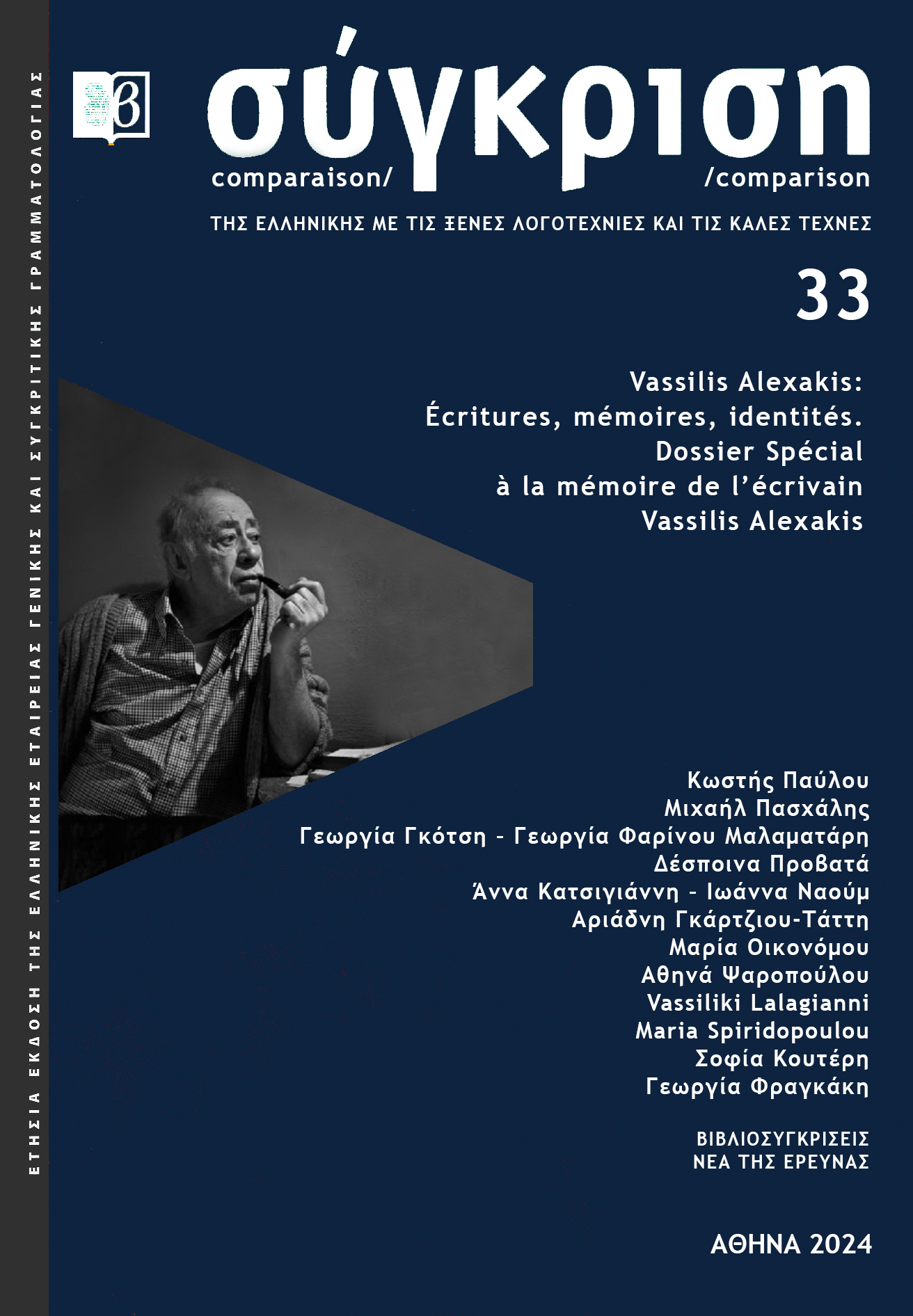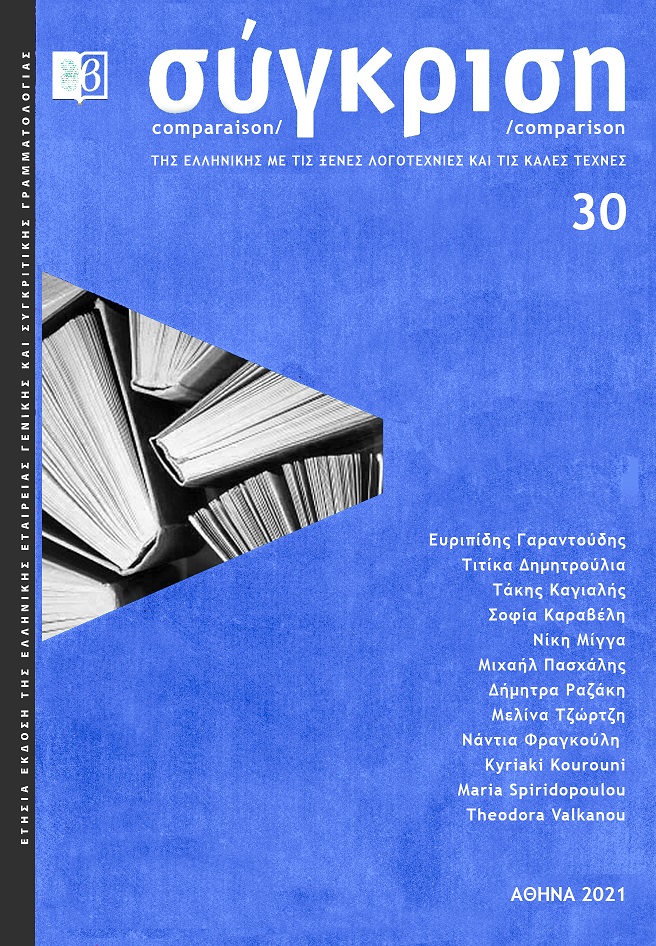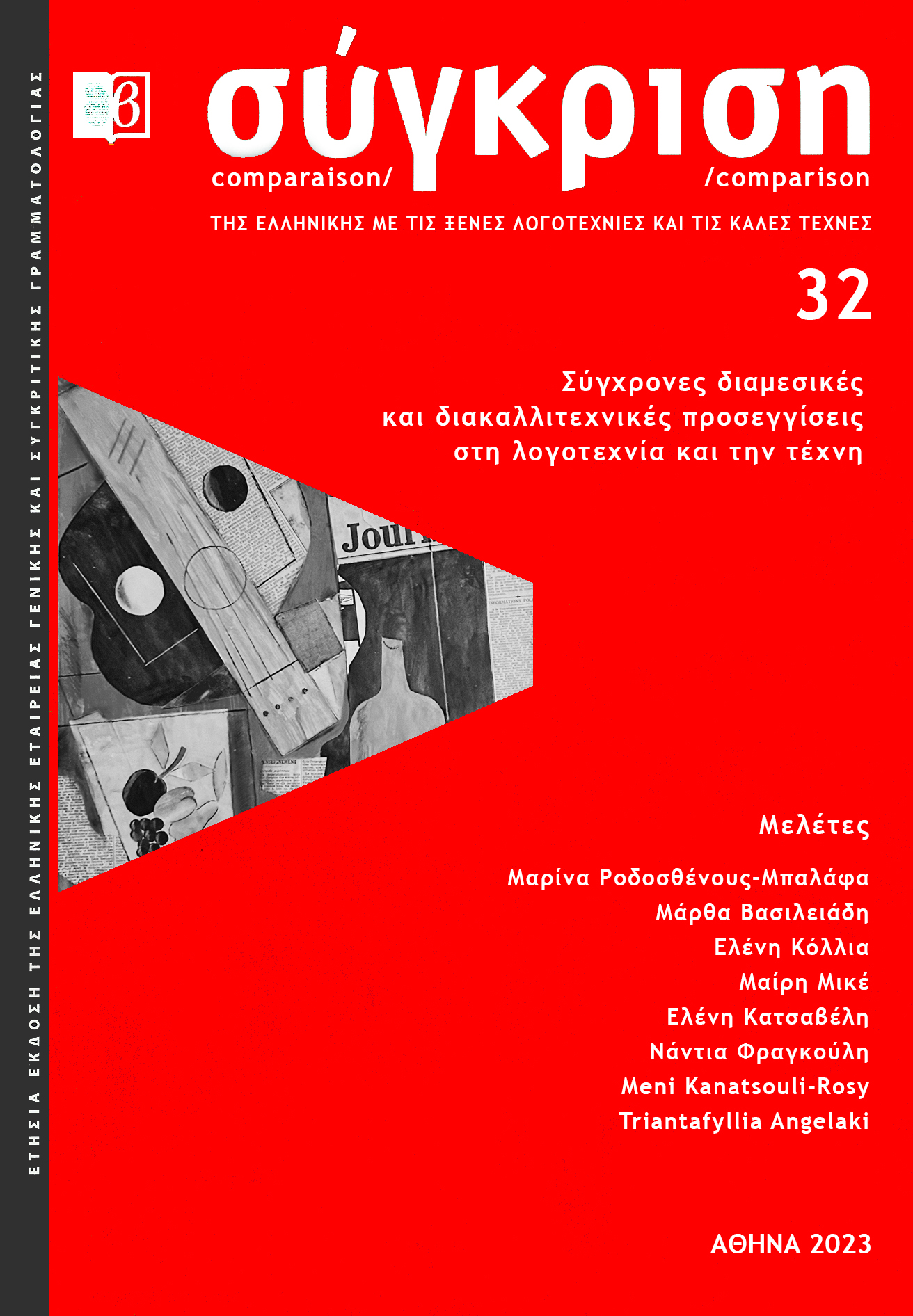Μορφές του χώρου και αφηγηματικές περιπλανήσεις στο Σουλτάνα σκιά της Ασιά Τζεμπάρ
Abstract
Αν «ο τόπος είναι αυτός που θεμελιώνει την αφήγηση» (Mitterand, 1980, 194), τότε η έννοια της χωρικότητας συνυφαίνεται με το μυθοπλαστικό στοιχείο. Το μυθιστόρημα Σουλτάνα σκιά της Αλγερινής γαλλόφωνης συγγραφέως Assia Djebar δομείται γύρω από μια χωρική διχοτομία που πολλαπλασιάζεται σε αντιθετικές κατευθύνσεις και νοηματοδοτήσεις ανατρέποντας τις πολιτισμικές συνθήκες της κλειστής, μισογυνικής κοινωνίας της μετα-αποικιακής Αλγερίας. Ο κλειστός χώρος του σπιτιού, ένας τόπος εγκλεισμού, έρχεται σε αντίθεση με τον ανοιχτό χώρο της πόλης, ο οποίος αντιπροσωπεύει την ελευθερία που βιώνει ως ίλιγγο η Χατζίλα, η γυναίκα-σκιά και alter ego της Djebar. Η έξοδος από το διαμέρισμα, η μετακίνηση στην πόλη και ο περίπατος στον δημόσιο κήπο αποτελούν παραβίαση του πατριαρχικού νόμου. Στόχος του άρθρου μας είναι να παρακολουθήσουμε τους κλειστούς και ανοιχτούς χώρους του του μυθιστορήματος και τον τρόπο με τον οποίο συνδέονται με την εξέλιξη της αφήγησης και την ταυτοτική μεταβολή των αφηγηματικών προσώπων.
Article Details
- How to Cite
-
Spiridopoulou, M. (2025). Μορφές του χώρου και αφηγηματικές περιπλανήσεις στο Σουλτάνα σκιά της Ασιά Τζεμπάρ. Comparison, (33), 313–323. Retrieved from https://ejournals.epublishing.ekt.gr/index.php/sygkrisi/article/view/37153
- Issue
- No. 33 (2024)
- Section
- Articles

This work is licensed under a Creative Commons Attribution-NonCommercial-ShareAlike 4.0 International License.
Authors who publish with this journal agree to the following terms:
- Authors retain copyright and grant the journal right of first publication with the work simultaneously licensed under a Creative Commons Attribution Non-Commercial License that allows others to share the work with an acknowledgement of the work's authorship and initial publication in this journal.
- Authors are able to enter into separate, additional contractual arrangements for the non-exclusive distribution of the journal's published version of the work (e.g. post it to an institutional repository or publish it in a book), with an acknowledgement of its initial publication in this journal.
- Authors are permitted and encouraged to post their work online (preferably in institutional repositories or on their website) prior to and during the submission process, as it can lead to productive exchanges, as well as earlier and greater citation of published work (See The Effect of Open Access).





